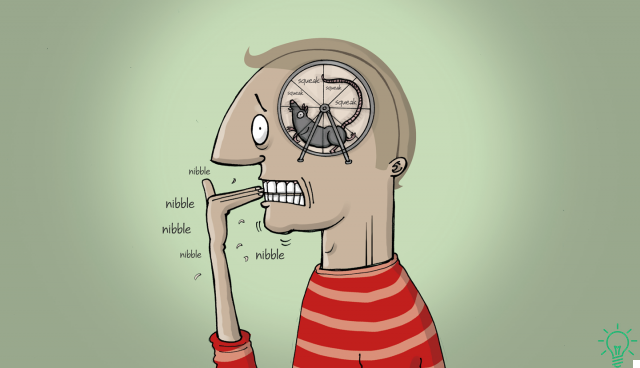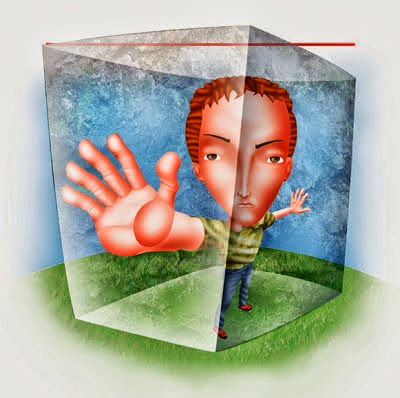
Anxiety is one of the most widespread psychological problems of our time, to the point that we could say that we live in the age of anxiety. On the one hand, we have to meet multiple commitments, be connected to respond immediately and meet ever higher social expectations that generate enormous pressure. On the other hand, the conditions in which we live and our bonds have become liquid, moving further and further away from the stability and security of other times.
The tension for performance and the uncertainty we live in constantly form an explosive cocktail that triggers anxiety. It is no coincidence that 4 out of 100 people suffer from an anxiety disorder. And if we do not intervene, the number will continue to increase.
3 thoughts that characterize the profile of the anxious person
- Prospective
Where are you? Where would you like to be? The greater the distance between these two responses, the greater the likelihood of suffering from anxiety. The less satisfying your current life is and the higher the expectations you have, the more anxiety you will suffer.
The problem is not the ambitious goals, but the fact that we perceive them as something unattainable or that the effort and sacrifices they require are so great that they generate tension. To avoid this problem, it is sufficient to set small goals that we can manage better and allow us to reach, step by step, the goal we have set ourselves.
The attitude we take also influences the achievement of these goals. We can work to achieve great results but still be satisfied with our present. If we work with one eye on a goal, but feel grateful and satisfied with our daily life, the anxiety will vanish.
- Pressure
Why do so many people put themselves in a situation that causes them anxiety? Why are they under pressure? The answer varies from person to person, but in many cases the starting point is the same: they want to fulfill expectations that border on the unreal.
These standards can come from society or from closest groups, such as friends and family. In fact, the pressure exerted by society is one of the most common sources of anxiety, since we want to respect at all costs what is expected of us. When we don't know if we will be able to meet the expectations of others, a whole series of anxious thoughts are activated.
In other cases it is an internal pressure linked to our value system, expectations about ourselves and our goals. In fact, the profile of the anxious person includes perfectionism, a tendency to self-criticism and self-determination. If you are a person who demands a lot of himself and has a high level of self-criticism but little condescension to himself, the chances are that you will end up succumbing to the pressures you place on yourself, and this generates anxiety.
- Permission
Many people do not give themselves permission to get away from anxiety, to alleviate the situation that generates discomfort. Thus they become trapped in a vicious circle that continues to fuel anxiety.
This insane behavior, which at first glance makes no sense, is actually very widespread. Many people, for example, equate having a full agenda and moving from one commitment to another to being important people. Therefore, freeing up space on the agenda would imply an attack on the image they have of themselves.
Others cling to worries because they believe it is what should be done or they think the worries make them better people. They don't realize that worrying without caring is perfectly useless.
So, to relieve anxiety, you also need to give yourself permission to let go or get away from all those worries or situations that make you feel bad and affect your mental balance.


























